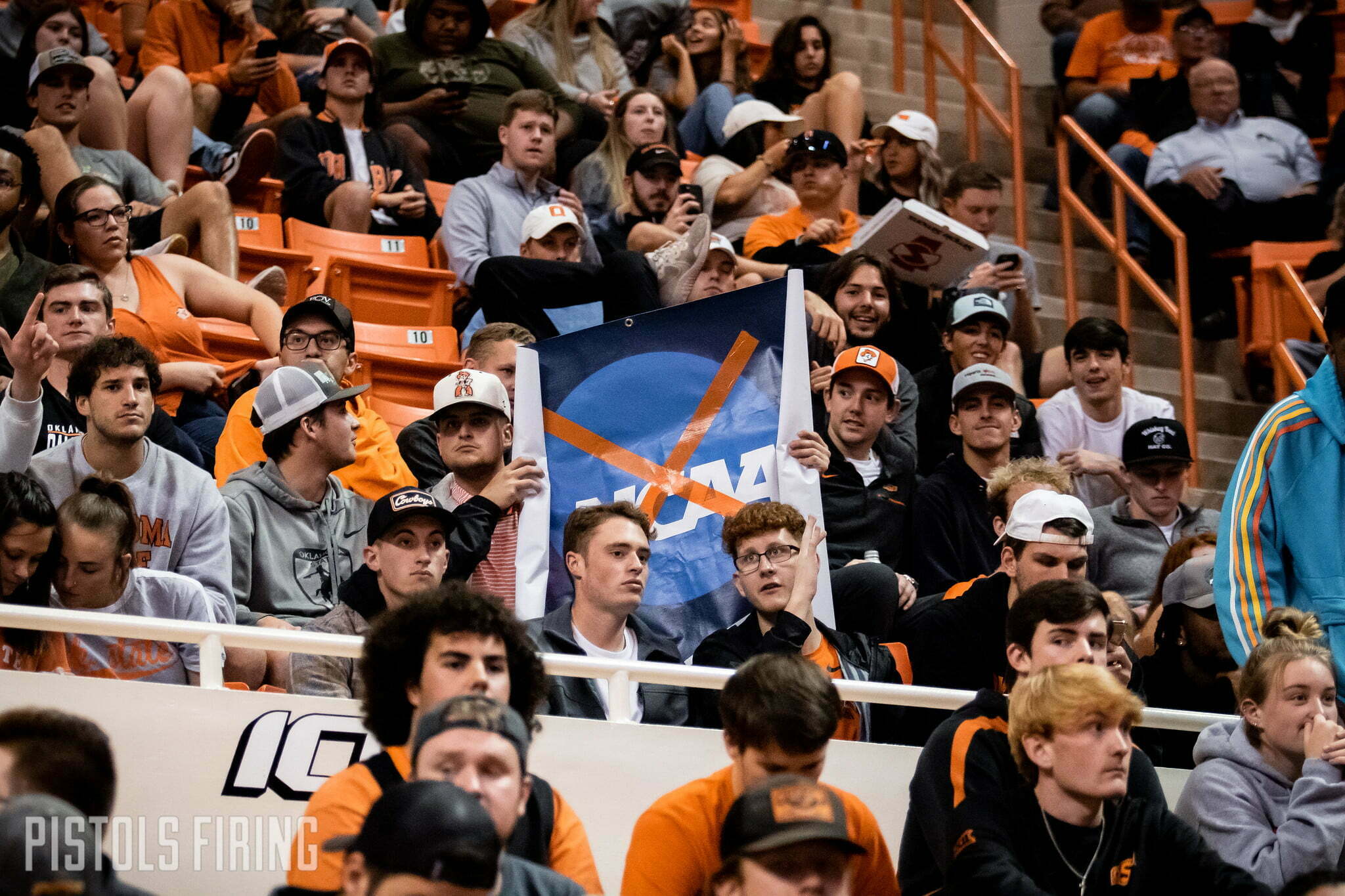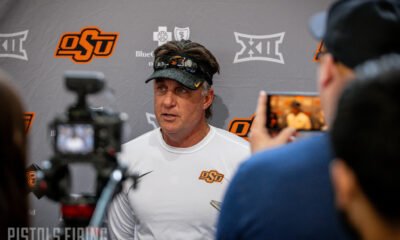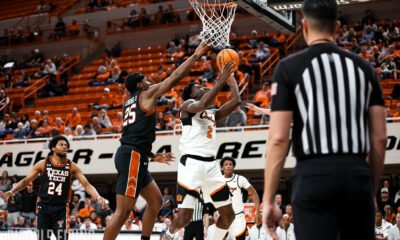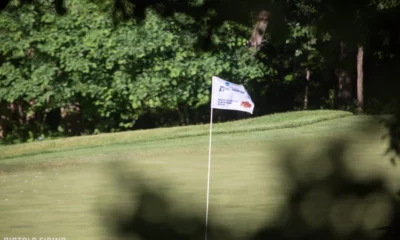Hoops
Kansas’ NCAA Wrist Slap Should Not Be a Surprise at This Point
On a long, tedious saga that seems totally upside down.

At this point, it shouldn’t be a surprise that another school caught up in the chaos that spawned from the FBI’s probe into college basketball got off with a slap on the wrist.
No matter the severity of initial sanctions, one by one schools schools caught up in the scandal avoided the dreaded punishment of a postseason ban — except Oklahoma State (and a few others that self-imposed).
After initially being whacked with five Level I sanctions, Kansas officially avoided a postseason ban Wednesday — some thousands of days after the all of this started. Oklahoma State had one Level I sanction and was hit with a postseason ban years ago.
It’s an old song and dance at this point — stuff that I’m getting tired of typing about over and over.
Oklahoma State was at the lower end of the allegations but received perhaps the harshest punishment (of course, after the NCAA got the ratings of No. 1 pick Cade Cunningham play in the Big Dance). But what was the difference in Oklahoma State’s case and the rest of them? Cooperation.
OSU went through the traditional process, cooperating with the NCAA and expediting things only for the NCAA to make an example out of the Cowboy program. But the real example the NCAA made surely wasn’t intended. Rather that saying “Doing illegal things will get you punished,” all this ridiculous saga actually said was “Don’t cooperate with the NCAA, and you’ll probably be fine.”
OSU elected to not go the route of the IARP (Independent Accountability Review Process) a decision that, in hindsight, was a mistake. With the Kansas ruling, the IARP is now defunct as it was apparently a big waste of time and money — like much of all of this.
Mike Boynton tweeted out Wednesday that he “stands by every single word” he has said in the past. He didn’t specify directly, but that’s likely in reference to him taking a blow torch to the NCAA when the postseason ban was announced.
“So the message is clear. Because we had one $300 violation, no failure to monitor, no lack of institutional control, no recruiting violations, no head coach responsibility, no players playing ineligible,” Boynton said back then. “So if you got some of those things going on, don’t do what we did. What we did was we asked them, that we worked with them through this process.”
Should Kansas have been given a postseason ban? I don’t know, maybe. It was so long ago at this point that the players are all new. None of the players on OSU’s roster that served the postseason ban were involved in the sanctions. Bill Self was linked in KU’s sanctions, and Boynton wasn’t. Self sat for four games last season while Boynton coached a team that for an entire season knew no matter what it did wasn’t making the Tournament.
Then there’s the differences of Boynton barely accepting the job when the FBI news broke whereas Bill Self had been a longtime staple at KU at that point. So, the one with the new head coach and less severe sanctions got a bigger punishment than the one with the head coach who was there and had more severe sanctions? It just doesn’t make any sense.
It’s more a matter of just how in the world OSU got hammered to the extent that it did and has little to do with Kansas getting off relatively unscathed. That’s a sentiment OSU took the high road on Wednesday in a statement:
“We agree, as we stated at the time, that the NCAA should be intentional in prescribing penalties that do not negatively impact student-athletes, including bans from postseason play, for violations that occurred in years prior,” OSU’s statement read. “It is good to see the NCAA make decisions with this intent, even if it was too late to help us.”
If OSU gets reprimanded for that statement, my head might explode, but I’m not sure I would be surprised at this point.
I’m sure the NCAA does some good. It oversees these sports that we all love. But between upside down basketball punishments and somehow pushing the blame to North Carolina after deeming Tez Walker ineligible, it’s tough to say how much power the organization actually has and whether it should have the power that it does.

-

 Hoops4 days ago
Hoops4 days agoFIU Transfer Arturo Dean Commits to Oklahoma State
-

 Football5 days ago
Football5 days agoThe Top 5 Quotes from Mike Gundy’s Final Spring Practice News Conference
-

 Hoops3 days ago
Hoops3 days agoTexas Tech Transfer Robert Jennings Commits to Oklahoma State
-

 Golf4 days ago
Golf4 days agoOSU Freshman Preston Stout Sinks Long Putt to Earn Share of Big 12 Title






